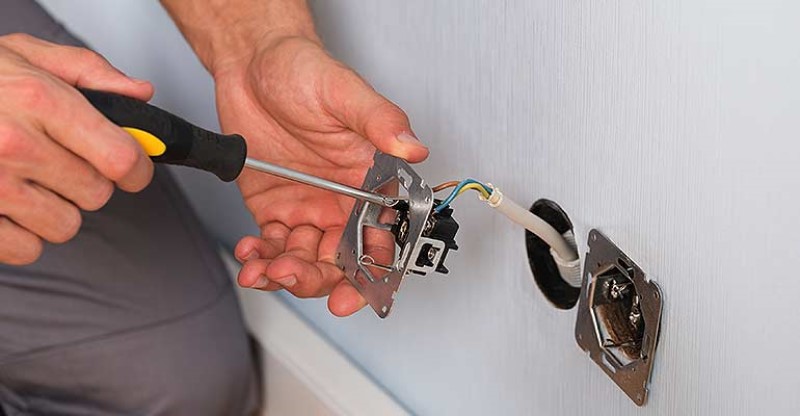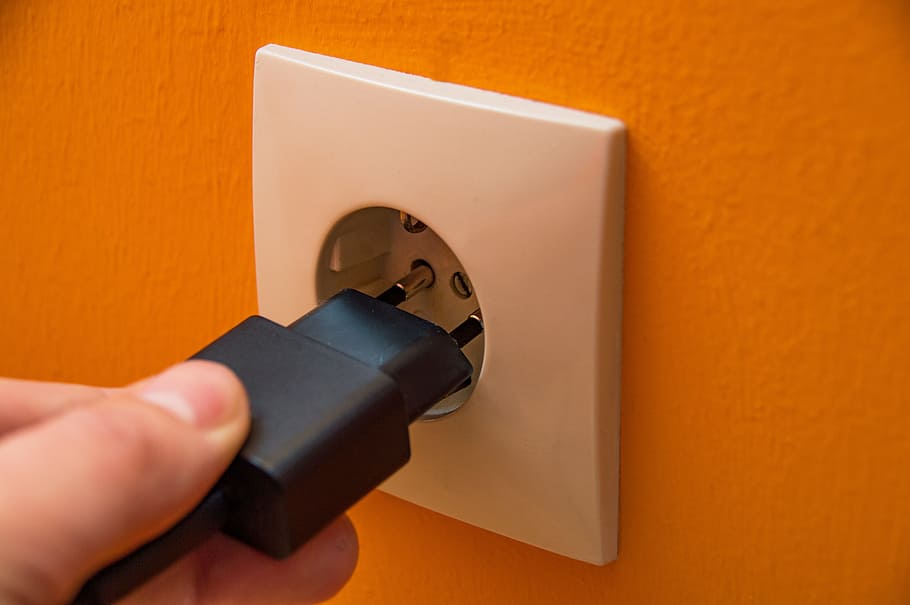For many guys, a garage isn’t just a workshop. It’s a sanctuary and a man cave, where you get to just enjoy doing your own thing. Most garage activities require at least some electricity, which is why having a functional garage circuit breaker remains so important.
What do you do if your garage breaker keeps tripping? Troubleshooting your breaker and fixing the source of the problem is what you need to do. Most breaker-related problems stem from:
- Overconsumption Of Energy
- Garage Doors
- Bad Outlets
- Circuit Breaker Problems
Fixing a circuit breaker that’s on the fritz sounds intimidating, but it’s usually not that bad a situation. Here’s what every homeowner should do.
Table of Contents
What Do You Do If Your Garage Breaker Keeps Tripping?

The best way to handle a garage breaker that’s on the fritz is to look at the usual suspects, and figure out what fix you’re going to need. To do this, you’re going to have to focus your troubleshooting in a specific order:
- Power Usage
- Garage Door
- Power Outlets
- The Circuit Breaker Itself
[googleadsycc adunit=”inarticle”]
Here’s how to troubleshoot and fix each issue.
Checking Your Power Consumption
The easiest thing to troubleshoot is your power consumption. If this issue is relatively new, take a look at your current power usage in your garage. Did you get any new tools? New lights, maybe? If you keep using them and leave them plugged in, the extra power use could be cause for a tripped circuit breaker.
To troubleshoot (and fix) this issue, just unplug the new items and see if it makes a difference. If your circuit breaker stops tripping, you just were using too much energy for the circuit board to handle.
Inspecting Your Garage Door
Believe it or not, garage doors are one of the most common reasons why a garage breaker could start tripping on a regular basis. Garage door openers take a lot of power and require a lot of work to use.
As garage door openers age, parts that keep them moving start to fail. Many of those failures can cause a circuit breaker to fail. Here’s what to look for in your garage door openers:
[googleadsycc adunit=”inarticle”]
- First, take a look at the wiring. Does your garage door opener have rusty, frayed wiring? This is the most likely cause of your breaker trips. You can either replace the wiring or get a new garage door opener.
- Then look at the plugs. If your garage door’s outlets look worse for the wear, it probably has an outlet problem. Call your electrician to see how it can be fixed.
- Then watch your garage door in action for warning signs. Garage door motors that are straining to do their job can trip a breaker, too. If you notice grinding noises, rust, or uneven opening, this is your culprit.
- Unplug the garage door and open up the logic board. When a logic board loses its functionality, parts of the board can literally burn out. This causes breakers to trip. If you notice burn marks on your logic board, you will need to replace your garage door opener.
Checking Your Power Outlets

The reason why we have circuit breakers is to prevent electrical fires from short-circuited electronics. By cutting the circuit’s access to power, breakers reduce the chances of fire caused by electrical heat. Simple, right?
Sometimes, things can still short-circuit. When they do, you might hear a zap, pop, or even see smoke. Shorts can still be intense, even if breakers prevent them from getting out of hand. It’s not unusual for power outlets and other wiring to get damaged as a result of the heat.
Power outlets can also sustain damage from other things, too–including wear and tear. Troubleshooting a bad outlet is fairly easy. All you need to do is look for the signs and fix the outlet.
[googleadsycc adunit=”inarticle”]
Signs Of A Shorted Outlet
Outlets that are damaged by short-circuiting electronics will trigger a breaker to trip even when no risk of a short is happening. If you have a damaged outlet, then you need to get it fixed in order to stop your garage breaker from tripping.
Shorted outlets can display a variety of signs, including:
- Smoke Stains. Does one of your garage outlets have smoke-like stains surrounding it? If so, it’s a shorted outlet and needs replacement.
- Crackling Noises. Some heavily damaged outlets will make a crackling noise regardless of what’s plugged in.
- Burn Marks On Outlet Covers. Yikes! This is a sign of an electrical fire. That outlet needs to be replaced immediately!
- Water Damage Nearby. Flooding can also cause an outlet to short-circuit. If too much water got near your outlet, it could have led to permanent damage.
Signs Of A Worn Out Outlet
Outlets don’t need to be shorted to go bad. Sometimes, it’s not a matter of shorting a circuit but just a matter of heavy use. If any of these signs ring true, you need to replace your outlets:
[googleadsycc adunit=”inarticle”]
- Worn Wires. Worn, rusty, or frayed wires are a sign that you need to upgrade your outlets. It’s a fire hazard and a breaker tripper.
- Loose Plates. Nasty stuff can get into outlets if you have a loose plate or a nearby hole in your wall.
- Rust. Rusty outlets are not good outlets, especially if the rust is inside the outlet.
Checking Your Circuit Breaker
Much like with other aspects of your garage, your circuit breaker will need to be inspected. Breakers can trip themselves if they are too worn or if they’ve been damaged. If you notice loose wires, burn marks or other signs of wear, your circuit breaker may be to blame.
A circuit breaker gone awry is no laughing matter and should be addressed immediately. After all, breakers are meant to protect your home against electrical fires. When your breaker stops functioning properly, you are potentially putting yourself at risk of a fire sparked by a short-circuit.
[googleadsycc adunit=”inarticle”]
When To Call A Professional
With most garage breaker problems, you can solve the problem on your own using a DIY tutorial and a little common sense. However, there are moments where it’s smarter and safer to call in a professional. These signs suggest it’s better to get an electrician to help you out:
- You can’t find the cause of the tripping. If you went through troubleshooting without any luck, the source of the problem could be something more worrisome. Calling in a professional is a safe way to make sure you find the real cause and get it fixed.
- The problem in question deals with your circuit breaker. Depending on the issue, you might need to replace your breaker. This isn’t a project for a casual DIY home enthusiast and should only be done by a qualified pro.
- You need a new garage door. Removing your old door and installing a new one is a hassle. Most people prefer the convenience of having a professional do it, even if it’s an “easy install” kit.
- There is water damage near your outlets or breaker. Water damage can do a lot more than just trip a breaker. It can cause your electronics to rot and wreck your garage walls. It’s smart to have professionals inspect it, just in case.
- You discovered serious electrical damage throughout your garage. Sometimes, homeowners discover that it isn’t one problem causing the trips, but a series of issues instead. It may be too much work for one person to handle. Asking for a little help won’t hurt.
Image Credits: laneysinc.com / apollohome.com



I find way to much. Electricians cutting the outer insulation of Romex with a blade knife. Stop it. Your cutting the wire casing also which causes serious problems, making a difficult fix. If your going to do electrical work, better get the little things correct at the start. Stop the shortcuts, cause this real electrician has been saving your work for 40 years.